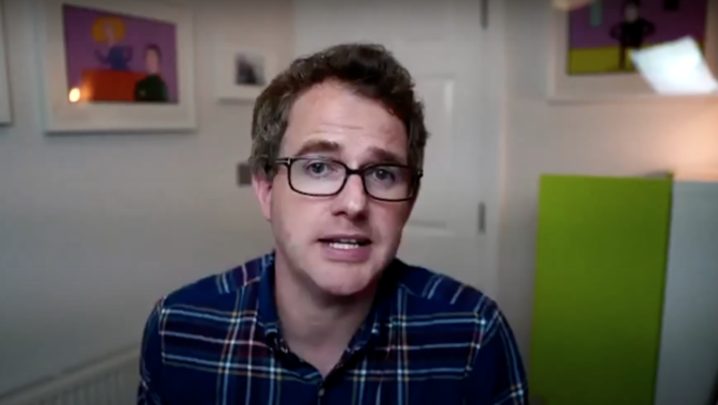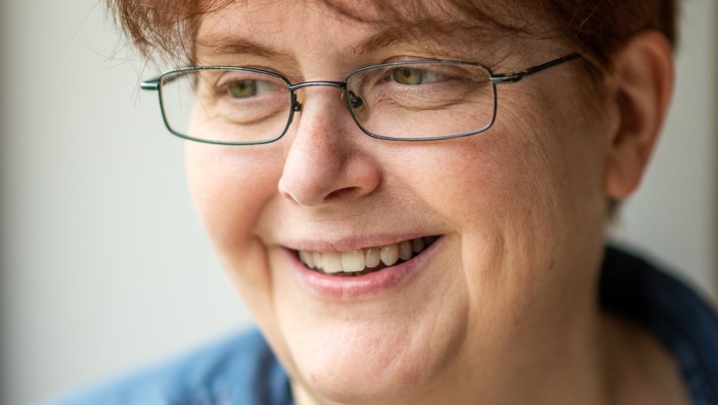The coronavirus pandemic has demonstrated the value of public service broadcasting at a time of unprecedented national crisis.
But the economic fallout from the lockdown will mean that the PSBs will face a fight to sustain the high-quality programmes and services to which audiences are accustomed.
This stark message was made in a RTS Cymru Wales webinar featuring a panel made up of the heads of the country’s broadcasting organisations.
Taking part in “Broadcasting in Wales: Lockdown and beyond” were: Rhodri Talfan Davies, director of BBC Cymru Wales; Phil Henfrey, head of news and programmes at ITV Cymru Wales; and Owen Evans, chief executive of S4C.
The session was hosted by Sian Morgan Lloyd, a lecturer at Cardiff University’s School of Journalism, Media and Culture.
More than 100 people joined the webinar, which was conducted in both English and Welsh. For the benefit of non-Welsh speakers, live English language translation was made available.
Davies said the logistical challenge of moving 240 journalists out of their offices into a homeworking environment within 48 hours was “a tribute to the level of focus and the clarity of thinking” in the newsroom and the technical and operational teams at BBC Wales.
Radio Wales and Radio Cymru were also shifted to home broadcasts. “In normal circumstances that would have taken us months to achieve but it was done in four or five days,” he said.
Looking to the future, he warned that current pressures on BBC funding and the prospect of an economic recession meant that all public service broadcasters would “inevitably need to look at their cost base” with implications for jobs.
“It’s fantastic that audiences have seen the value of public service media in all its forms in recent months,” he said. “But we’re going to face a fight to sustain the breadth and richness of what we currently have.”
Henfrey described the pandemic as one of the most challenging news stories ITV News Wales had covered. “But on another level, it’s amongst our proudest achievements,” he said.
“Our first priority was to keep people safe… That was counterbalanced by the need to stay on air and that was a huge challenge. But ITV’s greatest asset is its people, and through their ingenuity and adaptability, we were able to keep a comprehensive news and current affairs service on the air as well as upscaling the amount of content produced online – underscoring the value of PSB in Wales. But this story remains as challenging as it did 13 weeks ago.”
Evans said the pandemic saw viewing of S4C’s daily news programme Newyddion (made by BBC Wales) go up by 40%, with a 130% increase in consumption of its digital services.
“On top of what the BBC and ITV are making for us in news and current affairs, we developed a daily digital service around Covid. We also moved our current affairs programmes into peak-time slots.”
The participants said that current commissions were “on pause” rather than cancelled.
“It’s all about cash flow and maintaining the development and commissioning process,” said Davies. “No single broadcaster is able to maintain the whole sector alone but the key thing is that the broadcasters didn’t pull up the drawbridge and stop that expenditure.”
Evans said a priority for S4C was to bring security to Wales’s independents: “One of the first things we did was to have commissioning rounds so that we could keep things going. But I’m concerned about what will happen when the furlough period finishes.”
Henfrey said that, as a global producer, ITV would look to lessons from countries around the world in terms of re-starting production. He added that ITV is a trusted advertising platform and the UK Government could potentially help to kick-start that part of the economy.
There was consensus that the lessons of homeworking would reduce the need for large office spaces in future. However, in a creative industry, people would still need to come together physically to create a sense of shared identity, collaboration and purpose.
One aspect of the crisis has been the divergent approaches to the lockdown taken by governments in the devolved nations and the role of the broadcasters in explaining those differences to viewers. “There’s no doubt in my mind that this will be seen as one of the defining moments in the development of devolution in Wales,” said Davies.
The panel was asked about diversity and the impact of the Black Lives Matter movement. Each said that representation was already high up the agenda of the PSBs: progress was being made, but there was recognition that a lot more could be done.
The webinar was held on 15 June and produced by RTS Cymru Wales Chair Edward Russell. It can be watched on the RTS YouTube channel, see below:








